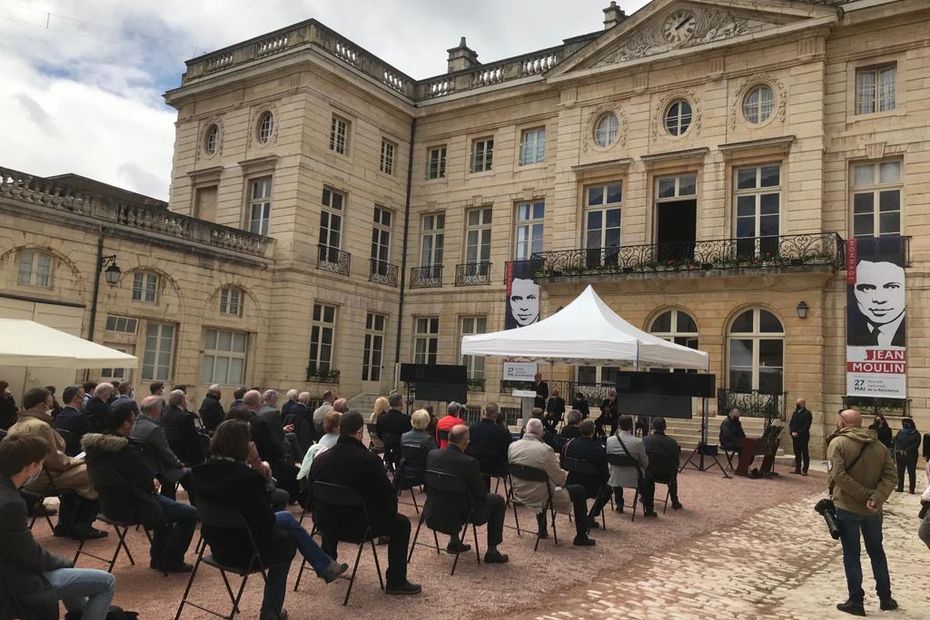On the occasion of the National Day of the Resistance, the court of honor of the Prefecture of Dijon was renamed the Jean Moulin court. The resistance’s great-niece was present for the event.
–
This Thursday, May 27, on the occasion of the National Day of the Resistance, the main courtyard of the prefecture was renamed the Jean Moulin court. A commemorative plaque was installed by the prefect of the Bourgogne-Franche-Comté region, Fabien Sudry.
This national day has been celebrated on May 27 since 2013. This date was chosen in honor of the first meeting of the National Council of the Resistance (CNR), held in 1943 in Paris.
“A duty to remember around Jean Moulin, for the resistance”
Cécile Benoit-Escoffier, the great-niece of Jean Moulin, was present to bear witness to the memory of the resistant: “ There is a duty of remembrance around his name, of course, and also for the resistance, so that the National Council of Resistance lasts, is not forgotten and is always honored. “Her husband, Gilbert Benoit, added:” It seems important to us that the whole of the Resistance through Jean Moulin be honored, that we remember what all the resistance fighters have done for us for our present today. »
Resistance member Pierre Meunier honored
A tribute was paid to him through a speech, as well as to the resistant Pierre Meunier. Former elected from Côte-d’Or and engaged in the resistance, he was a companion of Jean Moulin and secretary general of the National Council of the Resistance. Martine Guyon, Pierre Meunier’s niece, was also present at this ceremony.
Jean Moulin’s story
Jean Moulin was appointed Prefect of Aveyron at the age of 36 in 1936, then Prefect of Eure-et-Loir in 1939. In 1940, when German soldiers arrived, he organized the reception of many refugees. from northern France. When the German soldiers arrived at Charters on June 17, 1940, he did not leave his post and refused to sign false allegations incriminating the French army. Tortured but refusing to dishonor his country, he tries to commit suicide in his cell by slitting his throat. He is finally saved and will resume his post. The same year, he tried to identify the various French resistance movements. In 1941, he joined General de Gaulle in London. He then undertook to bring together the various French resistance movements from the north and the south. Jean Moulin was arrested on June 21, 1943 while he was organizing a meeting in Caluire-et-Cuire, near Lyon. He died on July 8, 1943 after being tortured. These ashes were transferred to the Panthéon on December 19, 1964, while it was resting until then in the Père Lachaise cemetery in Paris.
–

